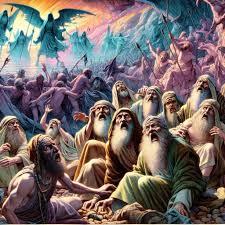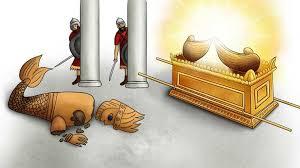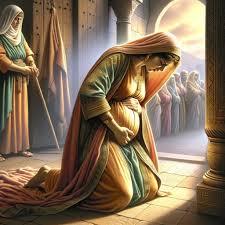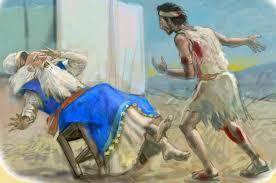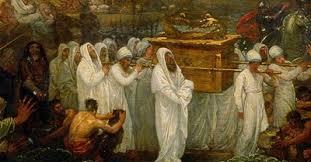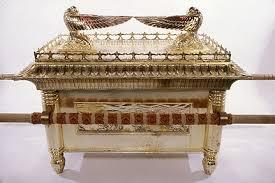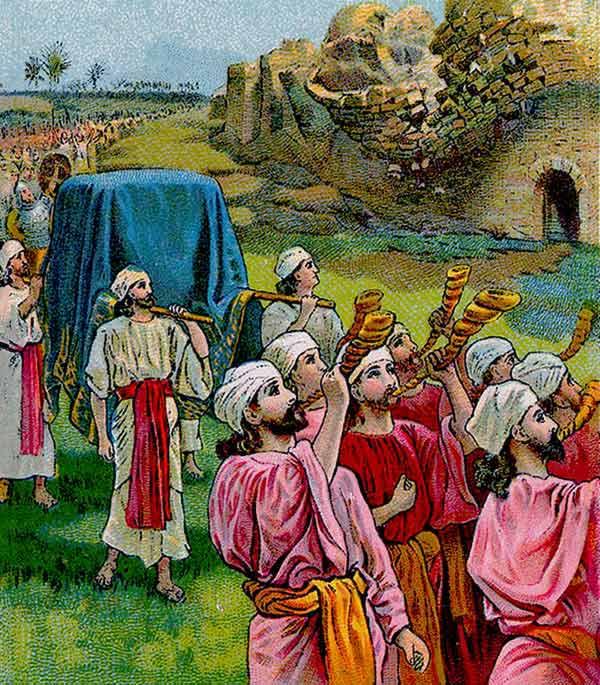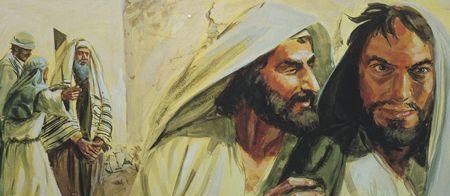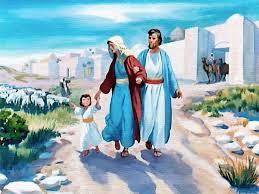Bh – The Ark at ‘Ekron First Samuel 5: 10-12
The Ark at ‘Ekron
First Samuel 5: 10-12
The ark at ‘Ekron DIG: Why did the Philistines keep playing “hot potato” with the Ark and keep passing it around? What took them so long to send it back to Isra’el? Why is God so heavy handed? Who is at fault for the suffering and deaths of the Philistines? The Philistines? The Israelites? ADONAI?
REFLECT: What scheme did the Philistine wise men use to test ADONAI? What was the outcome of their test? What do the events regarding the Ark teach us about what it means to call God holy? How does YHVH display His holiness today? Is the LORD sending you something that you want to get rid of?
The Philistines finally decide enough was enough, and sent the dreaded object of their destruction back to the Israelites.
Next they sent the Ark of God to ‘Ekron, six miles north of Gath, the closest major Philistine city to Isra’el’s border. But when the Ark of God arrived in ‘Ekron the people shouted, “Now they’ve brought the Ark of the God of Isra’el to us, to kill us and our people” (5:10)! The news of the deaths at Gath had not escaped their ears (5:6). The cry of the people there was an admission that ADONAI was the source of their troubles. It was curious that the Philistines knew of Ha’Shem’s power to strike the Egyptians (4:8), yet they believed themselves stronger than Egypt. The severity of the plagues grew increasingly worse, similar to those of the Egyptians, which corresponds to the Philistines’ failure to humble themselves before YHVH.144
So for a second time (5:8a), they summoned all the lords of the Philistines and said: Send the Ark of the God of Isra’el away! There was no appeal to Dagon. The Philistine god was clearly helpless and irrelevant in the face of YHVH, the God of the Exodus. At that time the Ark symbolized ADONAI’s power, even recognized by the Philistines. The strategy of the Philistines in moving the Ark from city to city is not unlike the desperate negotiations to see where to dump nuclear waste. It is exceedingly dangerous. Everyone agrees about that, and everyone believers it should be dumped somewhere far away. The Philistines agreed that YHVH was exceedingly dangerous, and the Ark should be placed somewhere far away.145
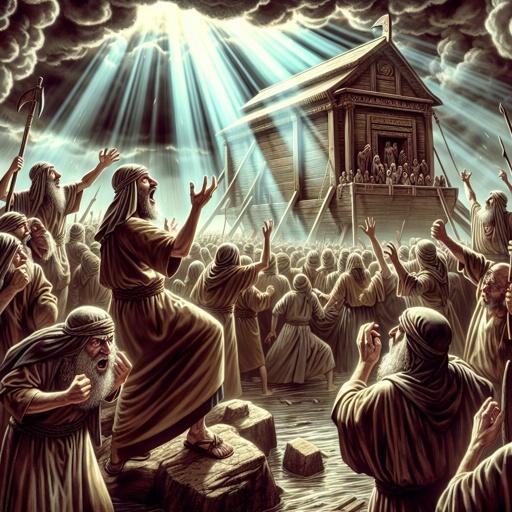
They drew the only possible conclusion: Let it go back to its own place, so that it won’t kill us and our people! – because death and panic pervaded the whole city; God’s hand was very heavy there. The Philistines, who seemed for an instant to prevail (to see link click Bb – The Philistines Captured the Ark), were defeated. The people who didn’t die (5:6) were struck with the tumors; and the city’s cries for help went up to heaven (5:11-12). The cries of the city of Shiloh (4:13) echoed the cries heard in Egypt. And there was a great cry throughout all the land of Egypt, such as there has never been, nor will ever be again (Exodus 11:6). It may well be that the cries in Egypt were so loud that there would never be cries like that again, but the Philistines came in a close second. They were also defeated, humiliated, and placed in jeopardy by the power of ADONAI, who was once again free and on the move symbolically in the Ark. The early Church confessed that the power of death could not hold Yeshua (Acts 2:24). Already here in First Samuel, the Spirit of God tells us that the power of Dagon and the Philistines was no match for the God of Isra’el. ADONAI was on the loose: free, sovereign and about to do something new,146 as we shall see in the next chapter.
God’s message for the Philistine world. By casting down Dagon (see Bf – The Ark at Ashdod) and striking the Philistines with His wrath, YHVH delivered a message not only to His own people but also to the Philistine world. As Richard Phillips relates in his commentary on First Samuel, first, God proved that he is a living God. The Philistines thought of their gods as objects – idols that they worshiped to gain an edge in the problems of life, but still objects. Isra’el had fallen into this kind of thinking when it put its confidence in the Ark, while forgetting God Himself. But ADONAI is not a thing to be manipulated and controlled, an object to be put on the shelf and taken down at our whim. He is still today what he was in Bible times: But the LORD is the true God; He is the living God, the eternal King (Jeremiah 10:10). When you think you have Him defeated, then He is active; when you think you have Him captive, He knocks down your god. He is God who cannot be restrained, unlimited, absolute, eternal – the living God. For this reason, we must always be thinking about God, before whom we live and move and have our being (Acts 17:28, quoting Job 12:10).
Second, the LORD taught that He is the only true God. God is jealous of His exclusive status: I am ADONAI your God . . . You shall have no other gods before Me (Exodus 20:2-3). YHVH is not satisfied if we make a little room for Him on the shelf beside our other gods. He demands exclusive sovereignty in our lives. He will not share His reign with idols, but ruthlessly humiliates them and strikes those who serve them. On the national level, if we make a god of government, then God will send corrupt and incompetent leaders. If we make a god of the economy, God is able to make the stock market plunge. If we use science to violate His commandments, then God will make our technology a curse to our lives. God demands that all things be submitted to His sovereign rule. I am God, and there is no other, He declares: I am God, there is none like Me (Isaiah 46:9). Likewise, on the personal level, God calls for us to submit all things to His service. He is not willing to share His sovereignty in our hearts with false gods such as fame, pleasure, or wealth.
Third, the living and true God proved that He is powerful and mighty. How swiftly and surely the Philistines were crushed when the heavy hand of God struck them, just as YHVH struck Pharaoh and the Egyptians in the time of Moses. There is no chance of withstanding the judgment of Ha’Shem, either now or in the future. The chances of sexual liberty producing happiness are nonexistent. For that reason, the odds of everything in the world (First John 2:15-16) prevailing indefinitely are exactly zero. ADONAI will strike down every rebel power with His infinite might.
History has born this reality over and over again. The French Revolution raised its fist against God, but didn’t produce brotherliness, but tyranny. Nineteenth-century German humanism did not produce a secular heaven, but the hell of Nazism. Atheistic communism did not produce a workers’ paradise but a slaves’ poorhouse. Likewise, secular-humanistic, postmodern America will not achieve its promised dreams of pleasure and prosperity, but only a legacy of societal ruin and lost opportunity. God lives. God demands our worship. And God is all-powerful to frustrate the plans of rebel mankind.
Finally, God reveals himself as a saving God. The Philistines might well have reflected on what ADONAI was doing to the enemies of His people. How faithful this God was to allow Himself, via the Ark, to fall into the hands of His enemies, that He might better save Isra’el. Reflecting on God’s covenant-keeping grace, the Philistines should have rejected Dagon and every other false god in order to embrace the true God in faith.
The message God delivered to the Philistines is the message we need to give to our world today. We must insist that God is not on the shelf, that He is very much involved in events and affairs, in accordance with the principles taught in His Word. He is a living God, and we must believe in Him. Moreover, we must insist that He is a jealous God, warning of grave danger for all who trust in other gods. We must show people from both Scripture and God’s providential dealings in history how foolish and futile it is to rebel against the true and living God, and how severe His holy judgment is against His enemies.
But we should also tell the world that the God we should all fear is also the merciful and saving God whom we can trust and adore. The incident of the Ark falling into enemy hands was only a preview of a greater work of salvation. God sent His own Son into this world to deliver His people. Yeshua surrendered to His enemies, but did not strike them with His heavy hand. Instead, He gave Himself to death on the cross. In this way, God struck the heaviest blow to the power and domination of sin, taking away its curse by cleansing our guilt with the precious blood of Messiah. The plague of sin that rightly should kill us, fell instead on Yeshua. Indeed, it was for Philistine sinners like us the Master died. While we were still sinners, Messiah died for us (Romans 5:8). Now, by trusting in Messiah, we are reconciled to live in the light of God’s love. And, remembering the Lord in obedient faith, we need never fear any Philistine ever again.147
Dear Heavenly Father, praise You that though You are almighty and all-powerful, You are also kind and gracious by revealing Your power to people. You showed Your power to all the Philistine citizens by displaying Your power when You knocked down their god in front of Your holy Ark (First Samuel 5:4), and when You afflicted them with tumors. You have power greater than any other of this world’s so-called gods. You are the One and only True and living God (Jeremiah 10:10, Isaiah 40:25-31). Please give my family and friends a moment of “spiritual clarity” so that they can see their sin for what it is, so that they might see the need for you in their lives. Cast your burden on ADONAI, and He will sustain you (Psalm 55:22a). Praise You for being such a loving and all-powerful Heavenly Father! But whoever did receive Him, those trusting in His name, to these He gave the right to become children of God (John 1:12)! May they be filled with Your eternal joy and peace as they keep their eyes on You. In Messiah Yeshua’s holy Name and power of His resurrection. Amen



